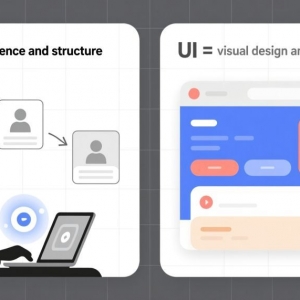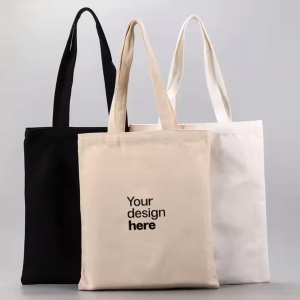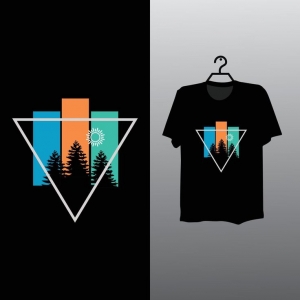When it’s time to build a website for your business, you’ll need to choose between a pre-made template or hiring a website designer for a custom solution. Both approaches can get you online, but the right choice depends on your business’s needs, budget, and long-term vision.
The Appeal of Templates
Templates are pre-built website designs available on platforms like Shopify, Squarespace, or Joomla. They’re designed to be user-friendly, allowing you to create a site without technical skills or a website designer. For small businesses or entrepreneurs, this simplicity is a major draw.
Templates are fast and affordable. You can pick a design, customize it with your logo, colors, and content, and launch a site in a matter of days. Many templates are free or low-cost, with premium options still far cheaper than custom development. This makes them ideal for businesses needing a quick, budget-friendly online presence.
However, templates have their limits. They’re built to serve a broad audience, so they may not fully capture your business’s unique needs. You might need to tweak your content to fit the template’s layout, which can feel restrictive. Adding specialized features—like a custom payment system or a unique customer portal—often requires hiring a website designer, which can reduce the cost advantage.
Another challenge is differentiation. Popular templates are used by countless businesses, which can make your site look generic. This can weaken your brand’s impact, especially in industries where standing out is key. Templates may also struggle to scale as your business grows, limiting your ability to add new features or handle increased traffic.
Why Choose Custom Website Design?
A custom website, created by a website designer, is built specifically for your business. Instead of working within a pre-set framework, a website designer crafts a site that aligns with your brand, goals, and audience. Every detail, from the navigation to the functionality, is tailored to your needs.
This approach is perfect for businesses that rely heavily on their website. For instance, an e-commerce business with a large product catalog needs a site with robust search tools, a seamless checkout process, and integrations with backend systems. A website designer can build these features to enhance the customer experience and boost sales.
Custom design also helps your brand stand out. In fields like creative services, consulting, or high-end retail, a unique website can build trust and set you apart. A web designer can create custom visuals, layouts, or interactive elements that reflect your brand’s personality, making a lasting impression on visitors.
Scalability is another advantage. A website designer can plan for growth, ensuring your site can handle new features, increased traffic, or expanded services. This flexibility can save you from costly rebuilds as your business evolves.
The downsides are cost and time. Custom websites require a significant investment and often take weeks or months to complete. You’ll need to collaborate closely with a website designer, providing input throughout the process. For businesses with simple needs, this level of effort might not be necessary.
Practical Applications
Consider a local coffee shop needing a site with a menu, hours, and a contact form. A template is ideal—quick, affordable, and effective without requiring a website designer.
Now picture a tech startup offering a SaaS product. They need a site with secure user accounts, seamless app integration, and a polished design to attract users. A template might work temporarily, but it’s unlikely to support complex functionality or scale effectively. A website designer can create a site that meets these needs and supports growth.
For a wedding photographer building a brand, a template might look professional but lack the uniqueness to showcase their style. A custom site, designed by a website designer, can feature bespoke galleries and a booking system, helping them attract high-value clients.
How to Choose
The decision depends on your business’s priorities and timeline. If you need a site up fast to share basic information, a template is a smart, cost-effective choice. Many businesses start with templates and upgrade to custom designs as they grow.
If your website is central to your operations—whether for sales, lead generation, or branding—hiring a website designer for a custom solution is worth the investment. A custom site offers flexibility, scalability, and a tailored experience that can give you a competitive edge.
Budget matters, but don’t let it be the only factor. A template might save money now but could limit your growth or require fixes later. A custom site, while more expensive upfront, can deliver long-term value through better performance and customer engagement.
Final Thoughts
Templates offer speed and affordability, while custom designs provide uniqueness and adaptability. The best choice depends on your business’s current needs and future goals.
If you’re unsure, a website designer can offer valuable guidance. Even if you opt for a template, they can recommend options that are fast, mobile-friendly, and optimized for SEO. Your website is often your business’s first impression—whether you choose a template or a custom design, ensure it represents you well.











